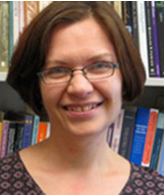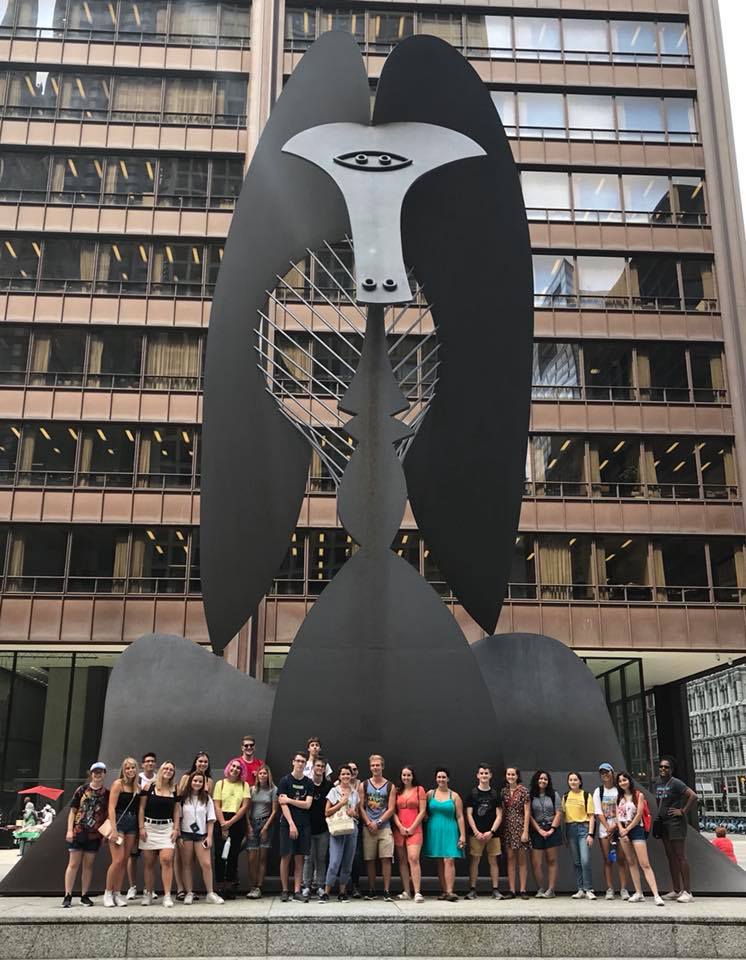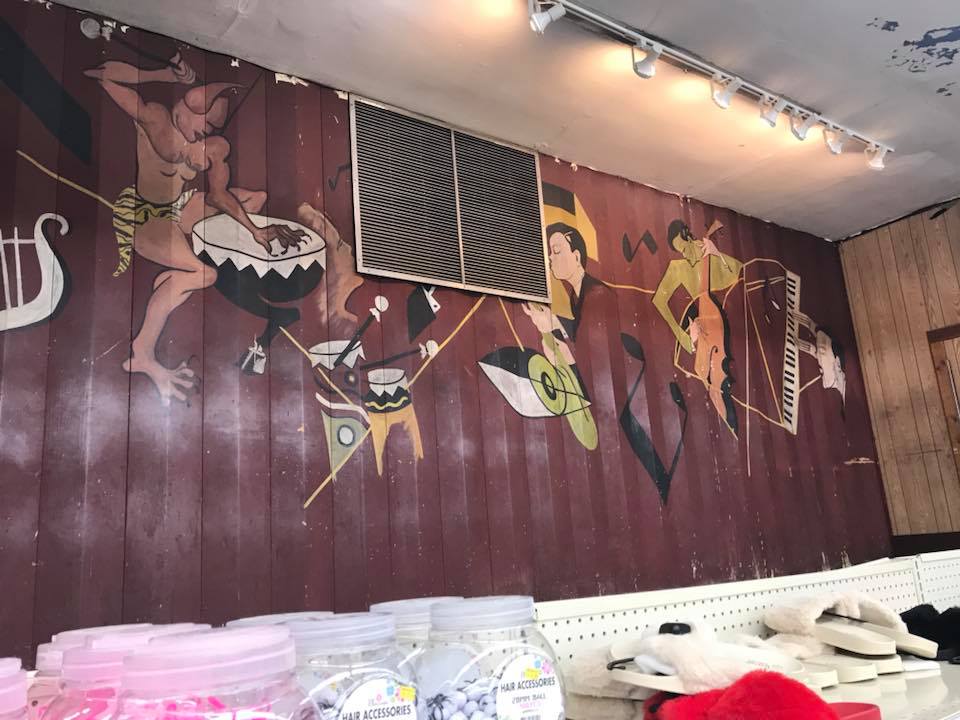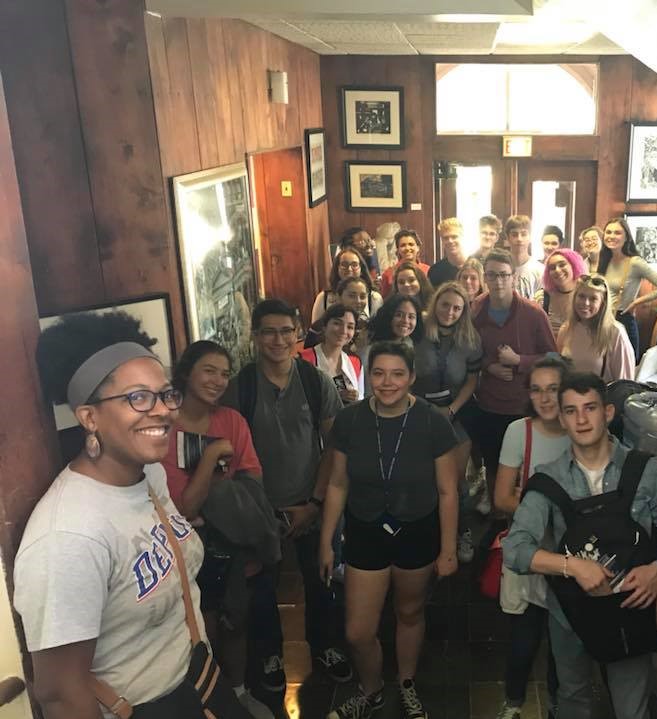 Rebecca Cameron
Rebecca CameronFor many years before I taught Discover Chicago, I suspected I would be a natural fit for this class. I love taking family and friends to my favorite places in Chicago, and since I don't own a car, I'm accustomed to navigating the city on public transportation and on foot. I was drawn to Chicago because of its amazing cultural scene, and I regularly attend theatre, art galleries, and architectural tours.
However, it was not until I became Associate Chair and Scheduler for the English Department that I became motivated to create my own Discover Chicago class. From that vantage point, I realized that there was a real need for experienced faculty to teach Discover Chicago classes in my department. In addition to pressuring other faculty to take on this challenge, I decided I should step up myself. I asked myself what Chicago-based course I would be in a good position to teach as a Canadian whose research area is primarily British literature and drama, and I realized that ever since I had come to Chicago, I had been informally teaching a particular subject to friends, family, visitors, and students. I'm fascinated with early-twentieth-century modernism, and my informal excursions with both students and guests almost always centered on art and and events associated with modernism, an artistic movement that is exceptionally well represented in Chicago (consider the Chicago Picasso, the Chagall windows, Mies van der Rohe's architecture, or
Poetry Magazine). So I set about preparing a proposal to teach a Discover course on the "Modernist Movement in Chicago." By coincidence, just as I was working on the proposal, I learned that the Newberry Library would be hosting a seminar for faculty and graduate students funded by the National Endowment for the Humanities on the topic of "Modernism in Chicago" led by Liesl Olson, the Director of Chicago Studies at the Newberry Library and author of
Chicago Renaissance, Literature and Art in the Midwest Metropolis (Yale UP, 2017). I couldn't believe my luck.
 Students in front of Picasso Sculpture, Fall 2018
Students in front of Picasso Sculpture, Fall 2018
I completed the intensive, four-week seminar at the Newberry just six weeks before my first Discover Chicago course was set to begin. Not only did the seminar introduce me to many new works and ideas that proved useful in planning my class, but it also included excursions, several of which I was able to incorporate in my Discover class (such as the South Side Community Arts Center and the Arts Club of Chicago). Perhaps more importantly, I experienced first-hand the value of experiential learning and the benefit of incorporating site visits, archival documents, and guest experts alongside more traditional modes of classroom teaching. My fellow seminar attendees, all professors and graduate students, agreed that the excursions added significantly to our appreciation and understanding of the subjects we were studying. The Discover Chicago experience was clearly beneficial beyond freshman year.
 Sunset Cafe Murals, Urban Beautique Building
Sunset Cafe Murals, Urban Beautique Building
The Newberry seminar and my own enthusiasms prepared me well to teach the course content, but nothing really prepared me for the special mood of nervous excitement on the first day of my first Discover class. Students had come in from all over the Chicago region and the country, and this was their very first experience in a university. Many of them were setting up their dorm rooms and getting to know their roommates, and all of them were looking to make new friends. Before the first day, I made the effort to learn all of their names by memorizing the class roster (something that usually takes me a couple of weeks), and through that act alone I managed to overturn my students' expectations of university, as several of them had been told by their high school teachers that their professors wouldn't ever get to know their names or care about them at all as individuals. My teaching partners, Charlie Bower (CQM) and Stephanie Souvenir (Staff Pro), were exceptionally helpful in creating a relaxed and welcoming atmosphere for the students, and they were able to answer questions I couldn't about the food plan, printers, and campus jobs. I have come to realize that Immersion Week is incredibly important, not just for getting students engaged in a subject and helping them to navigate parts of the city they may not have visited, but also for helping them to make a home for themselves at DePaul through a network of friends, mentors, and professors they can turn to if they need advice or assistance.
As those of you who teach Discover Chicago well know, Immersion Week can be
 Students at the South Side Community Arts Center, Fall 2018
Students at the South Side Community Arts Center, Fall 2018exhausting, and it does cut off one precious week of summer research or vacation time. However, I have found Immersion Week also to be a particularly rewarding and invigorating form of teaching. The classroom community that develops in Discover Chicago classes is unlike any other I have experienced in my years of teaching. I have also found that students at this early stage in their studies are particularly receptive to new experiences and ideas, and it's a great time to encourage them to think about their university education not just as a necessary step toward getting a particular job, but also as an opportunity for genuine intellectual engagement and personal growth.